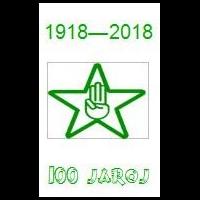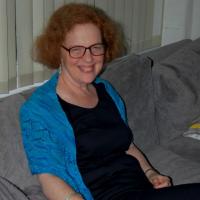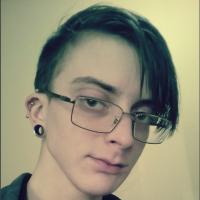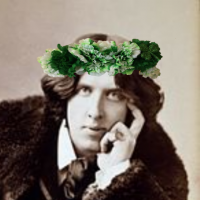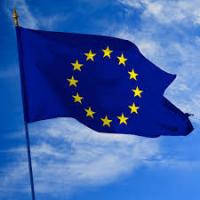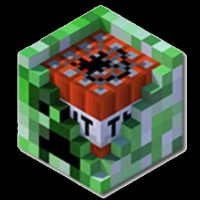Postitused: 60
Keel: English
se (Näita profiili) 15. veebruar 2016 0:40.55
Vestitor:I predict a flame war because there are a lot of "traditional" people active in the main Esperanto forum...viewpoints specifically.Jes, i certainly agreed with that, i read many esperantists, by their religions, hitting the homosexual community and even the young man,from a cathalic country who is well-loved by many esperantists, got not too far from the bricks.
Quite agree that whites dominate in most part of the world as it might be the part and parcel of the past experience of colonismo.
If Asians can be pushed to learn Esperanto, they can be more outward looking and communication will be much easier. Even the facebook group is doing very badly. They talked about this thread but no one responded.
Homosexual comminity in Asia still has a long way to go especially the Chinese esperantists, most of them are members of the communist party, totally against homosexual and do not venture into gay community to promote esperanto.
yyaann (Näita profiili) 15. veebruar 2016 3:04.21
brulponeo:I heartily support a conversation around this in Esperanto; I just don't quite have a good enough grasp of Esperanto yet to host it. If someone else would like to take it over, I'd do my best to keep up.Brulponeo, maybe you could sum up the points that you would like to see addressed? I'll be willing to translate your summary into Esperanto. I trust that native English speakers will correct me if my translation is not faithful enough.
ruth3209 (Näita profiili) 15. veebruar 2016 3:27.07
brulponeo (Näita profiili) 25. veebruar 2016 3:40.24
yyaann:I don't know that I was really looking to "address" anything specifically; my main intent here was to rustle up a few LGBT Esperantistoj to practice with and to spark some conversation by and around LGBT folks. An esperanto LGBT "community" would be nice but all the links I've found, as mentioned earlier by someone else, are dead. I'd love for this conversation to happen in Esperanto.brulponeo:I heartily support a conversation around this in Esperanto; I just don't quite have a good enough grasp of Esperanto yet to host it. If someone else would like to take it over, I'd do my best to keep up.Brulponeo, maybe you could sum up the points that you would like to see addressed? I'll be willing to translate your summary into Esperanto. I trust that native English speakers will correct me if my translation is not faithful enough.
@devilyoudont - I missed your post earlier but yes exactly! You put things more succinctly than I could have. Thanks.
Given time and patience re: my mistakes, I can throw together an introductory post in Esperanto. Admittedly, I hesitate because I don't feel like wasting my energy defending who I am as a person from more conservative people in a language I barely have a grasp of. I have no interest in a flame war.
tigereye468 (Näita profiili) 5. august 2019 19:39.08
Joms (Näita profiili) 6. august 2019 6:49.35
robbkvasnak:The whole alphabet thing was born in the USA - and that is where it should stay. It is a reflection of US society. I think that Esperanto should go its own way and forget about GLBT or LGBT or TBLG or whatever. I suggest that we seek a word that would offer space for us all.I like the idea of a word to incorporate the whole community, though I don't think "liberseksema" does the trick since it only incorporates the sexual minority portion of the community.
I know that in the USA there is now a trend to use 'queer' - but that was a word that was used for bullying and namecalling (I was a victim of it and I shudder every time I hear it.)
Originally the word 'geja' came into Esperanto from American English but when it came into Esperanto it had a more universal meaning and was not specific to homosexual males (also perceived by some in the US as white homosexual males, uff). Why can't we just use 'gegeja' for everybody who feels that they are outside what they perceive to be the same-old same-old or 'traditional role' in sexuality. Or 'liberseksema' or something?
I was at the LSG meeting in Lille and I heard people 'attacking' others for seeming to ignore their particular niche when I really don't think that that was anyone's intention. And the local French group flinched when I discribed our local group here as also giving homeless younger people counseling on sexually transmitted diseases - so there seems to be cultural cultural luggage to observe as well.
I volunteer here where I live and there are a number of people who come to us and say: "I am not gay/lesbian/bi blablabla but I have sex with (fill in the blank) and I need help." It really gets confusing because stereotypes get attached to the letters and cubby holes.
Anyway, this is a fruitful (no pun intended) conversation on lernu - and I think that Esperanto culture has to find its own way.
Metsis (Näita profiili) 7. august 2019 6:30.50
Genjo_BlankaRingo (Näita profiili) 22. november 2019 15:27.46
Mi estas ambaŭseksema, kaj mi lernis Esperanton legante librojn (lernolibro kaj La Hobito,) kaj ankaŭ de Duolingo; kaj mi parolas ĝin tre bone.
Zam_franca (Näita profiili) 22. november 2019 20:51.34
They're often esperantists at the Gay Prides, right?
Kiel esperantigi la anglalingvaĵo "coming out" (nova vorto aperis en la franca laŭ la retejo de la akademio, « jour de courage » (=tago de kuraĝo)) ?
robinvdv (Näita profiili) 23. november 2019 2:28.43
Zam_franca:Estas ofte esperantistoj ĉe la Gejaj Fierecoj (mi ne konas la bonan tradukon), ĉu ne?Mi kutime aŭdas "elŝrankiĝi" kaj "elŝrankiĝo".
They're often esperantists at the Gay Prides, right?
Kiel esperantigi la anglalingvaĵo "coming out" (nova vorto aperis en la franca laŭ la retejo de la akademio, « jour de courage » (=tago de kuraĝo)) ?
http://www.reta-vortaro.de/revo/art/sxrank.html#sx...
https://eo.wikipedia.org/wiki/El%C5%9Dranki%C4%9Do
